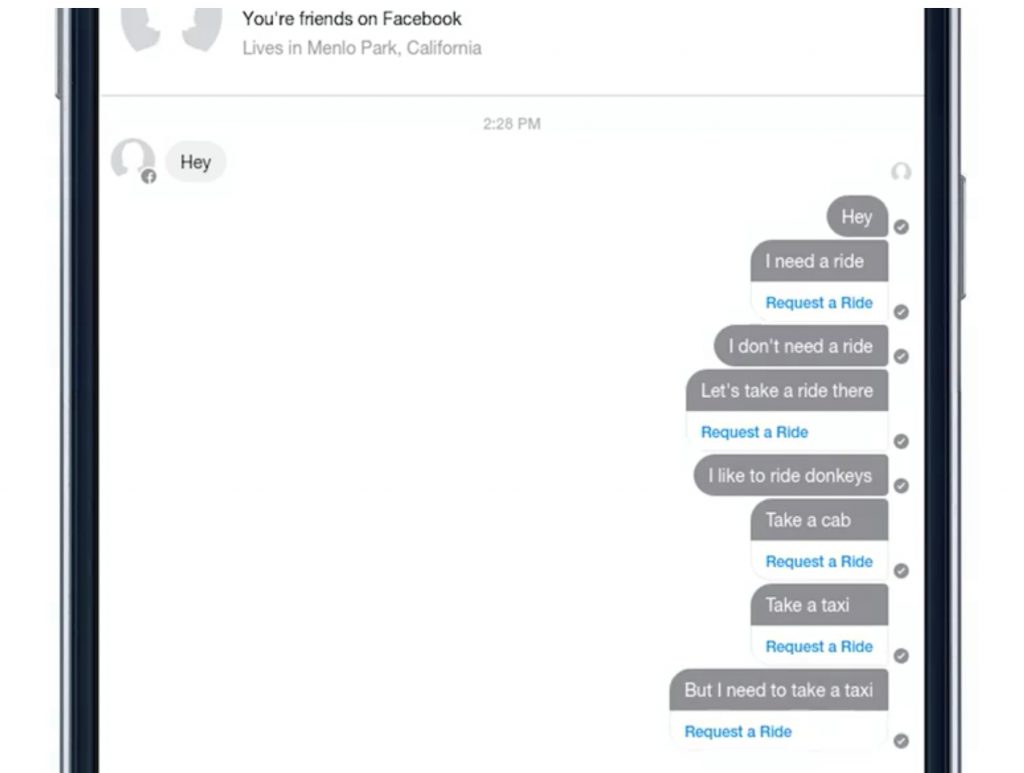Facebook users crank out an astonishing 400,000 new posts a minute covering everything from our most essential life events to what our latte art looked like this morning. Now the social media giant wants to rummage through all our chatter to understand the meaning behind what we say. It’s a big move that could spell major changes for Facebook Messenger and our news feeds.
The company recently unveiled an artificially intelligent text understanding engine called DeepText which they say deciphers meaning with “near-human accuracy”. It applies a machine learning technique called deep learning aimed at picking up meaning and sentiment from a wide range of conversational styles and even slang words and phrases.
Take the two sentences: “I need a ride” and “I just came out of the taxi”. DeepText will offer to call a cab for the user in the first scenario but knows not to in the second. The difference might seem obvious to us humans but machines have a harder time picking up on such nuances.

To start off, Facebook is limiting DeepText’s rollout to sales-related posts only. People use Facebook all the time to advertise things for sale but most users simply make generic posts without taking advantage of Facebook’s built-in sales features. DeepText can identify this intent and parse the price and item details all before the user hits Post.
Of course Facebook isn’t the only company searching for better Natural Language Parsing (NLP). They’ve got stiff competition in the likes of Google’s SyntaxNet and Apple’s Siri. But what’s remarkable about Facebook’s approach is that they didn’t start off by teaching DeepText any grammar. Instead, they fed it real sentences from their vast trove of posts and messages and applied some mathematics. This makes the technology flexible enough to deduce the meaning of slang on its own as well as acquire new languages much faster than traditional NLP. It’s already learned 20 of the 70+ languages Facebook supports. One zealous Facebook engineer even trained it on Indonesian in a weekend.
It’s pretty clear this technology has potential to change the way Facebook interacts with its users. By understanding the topic of every post, Facebook can start building much more complete profiles on its users and their habits. The knowledge could help them create more targeted ads and organize the content on our news feeds. It could also sort comments based on relevance and help flag hate speech. Ultimately, they want users to stay more engaged and stick around for longer on their site.
All this might sound a bit scary but we have to remember Facebook is already analyzing our posts and other activity in an attempt to understand our preferences. Just imagine what will happen now that it can hear the sentiment behind our written words.











